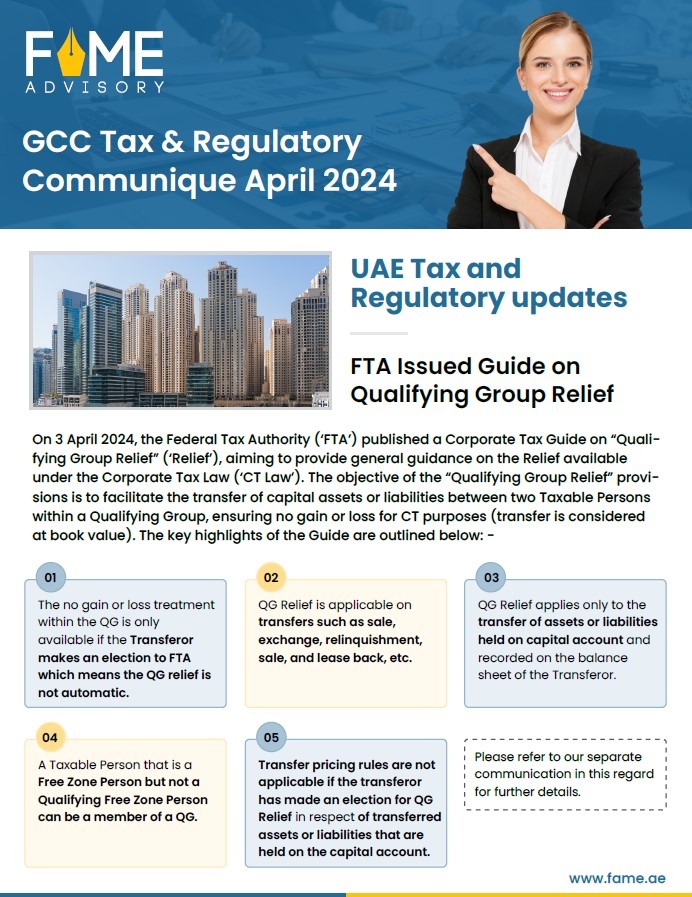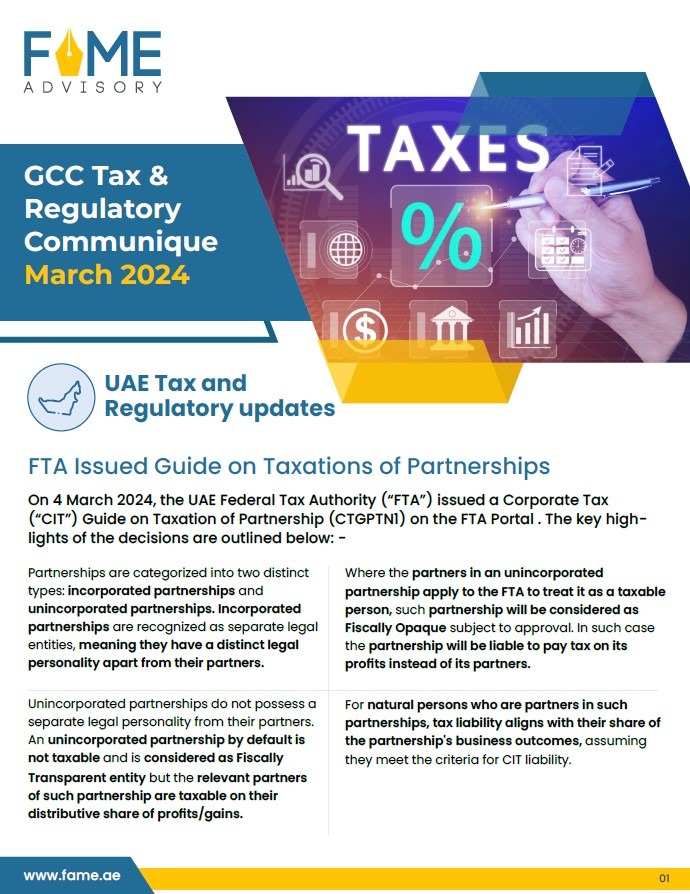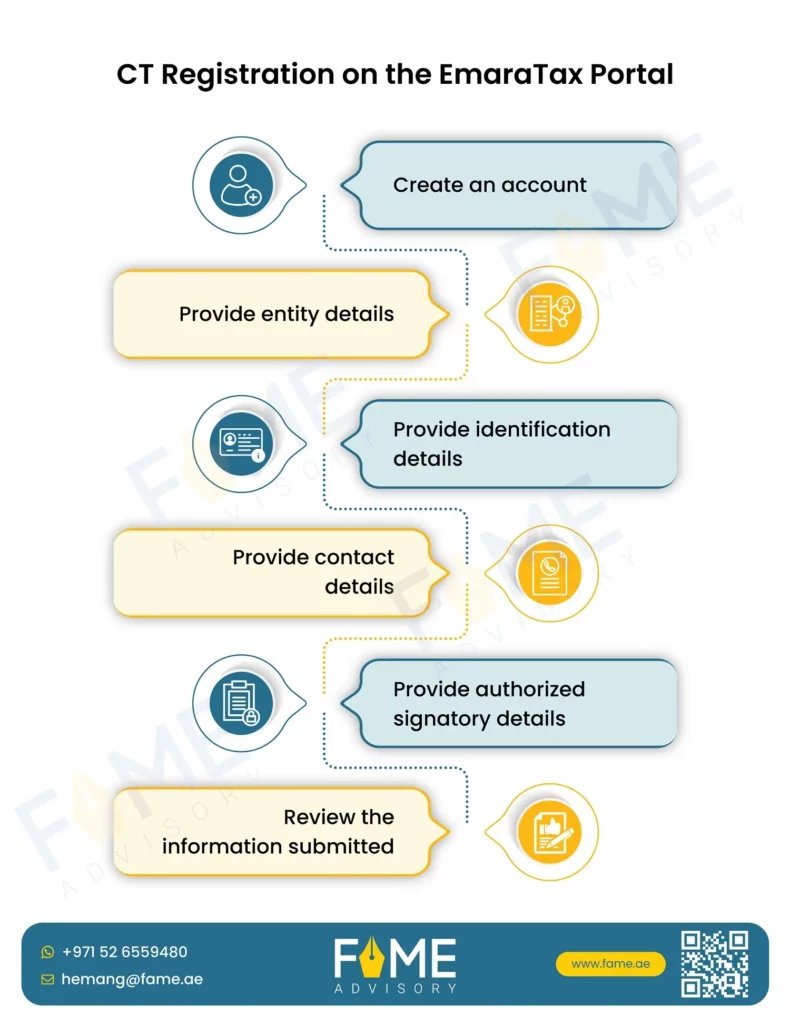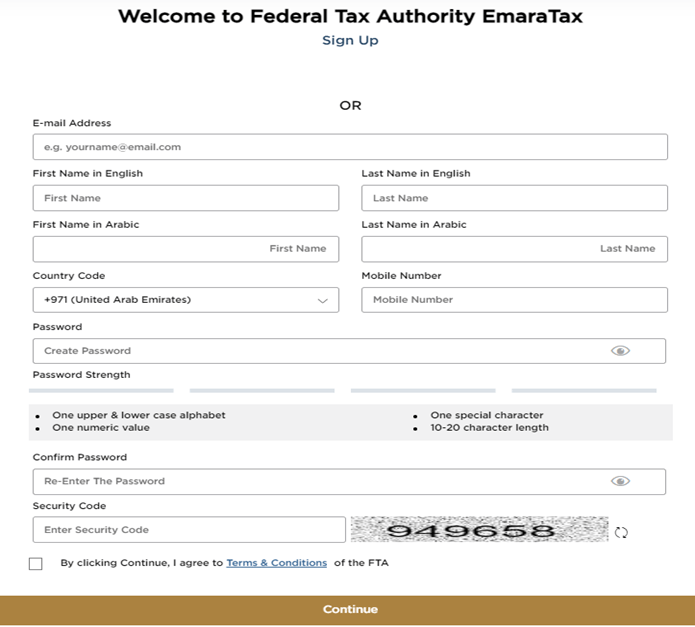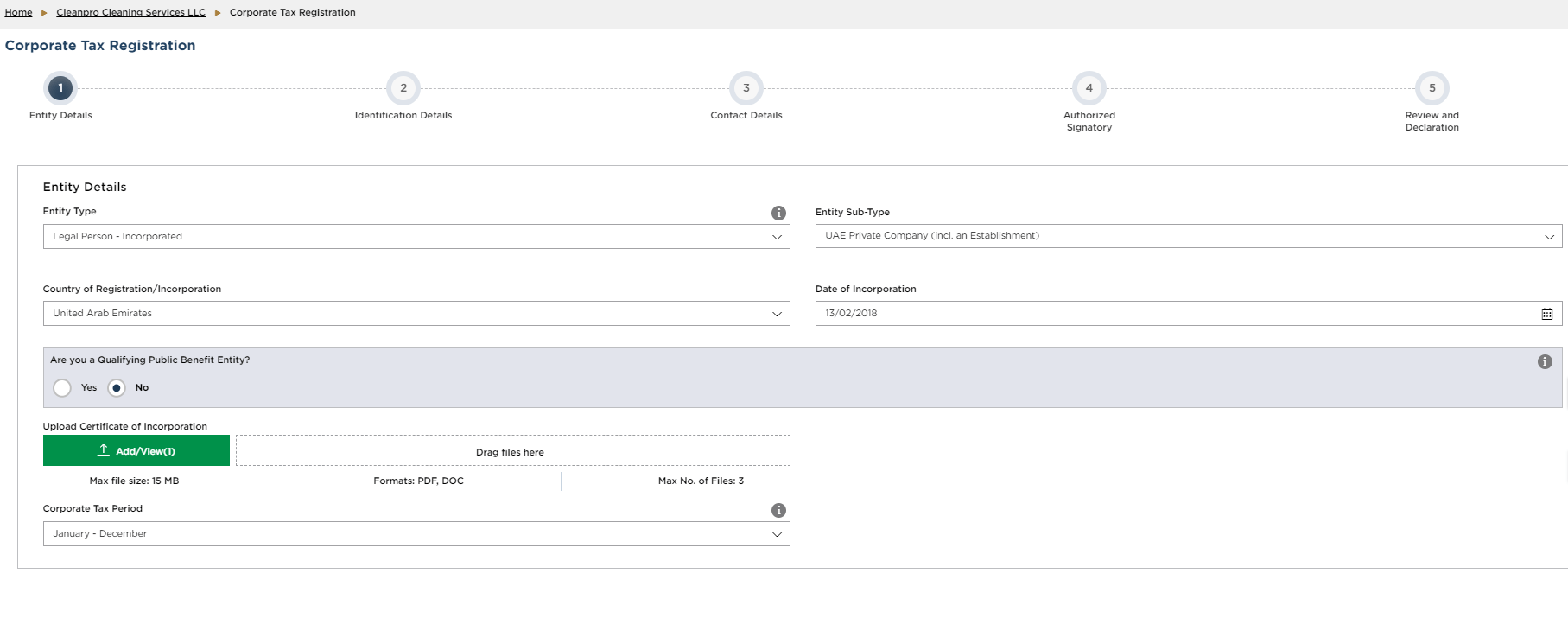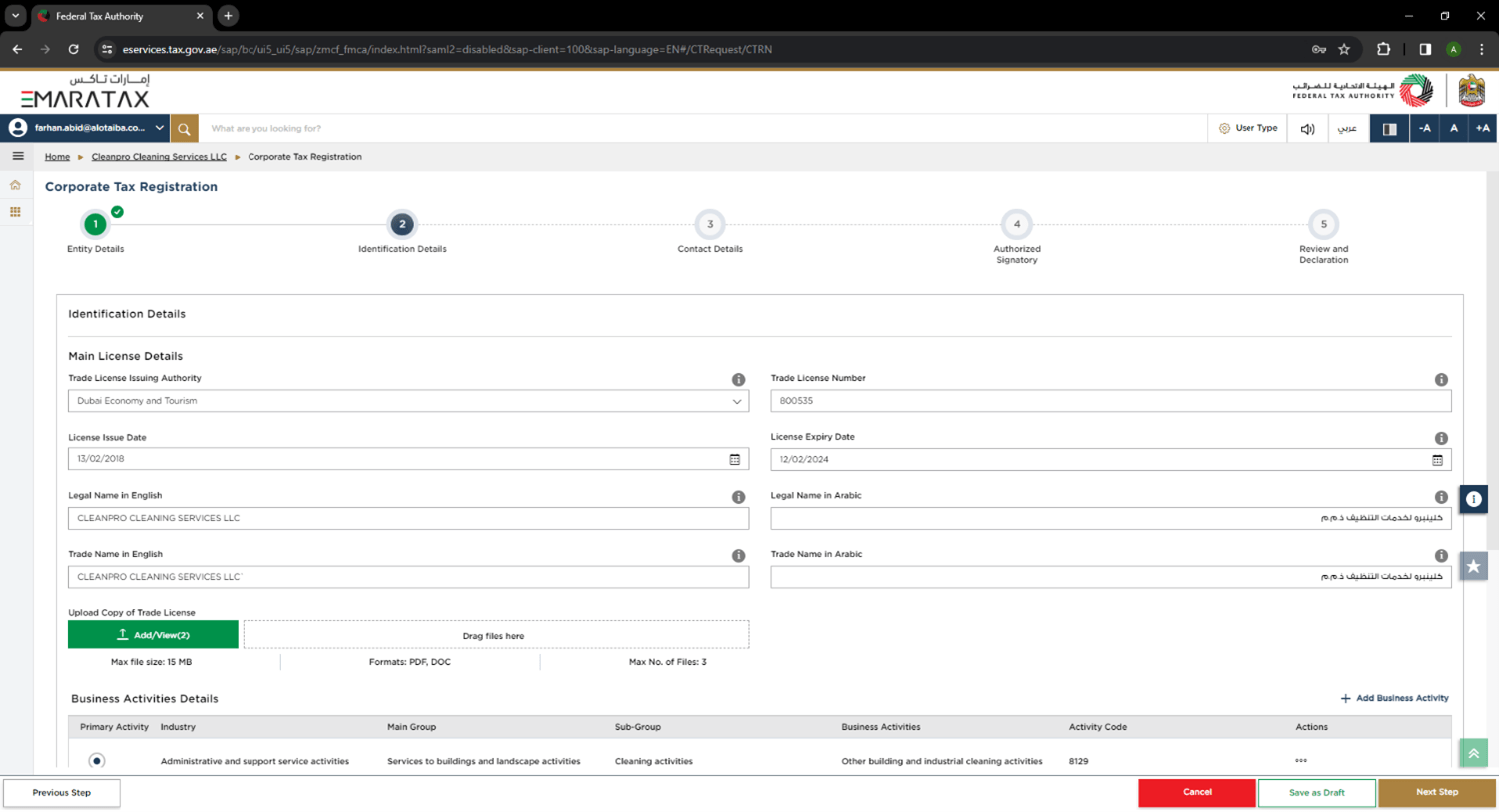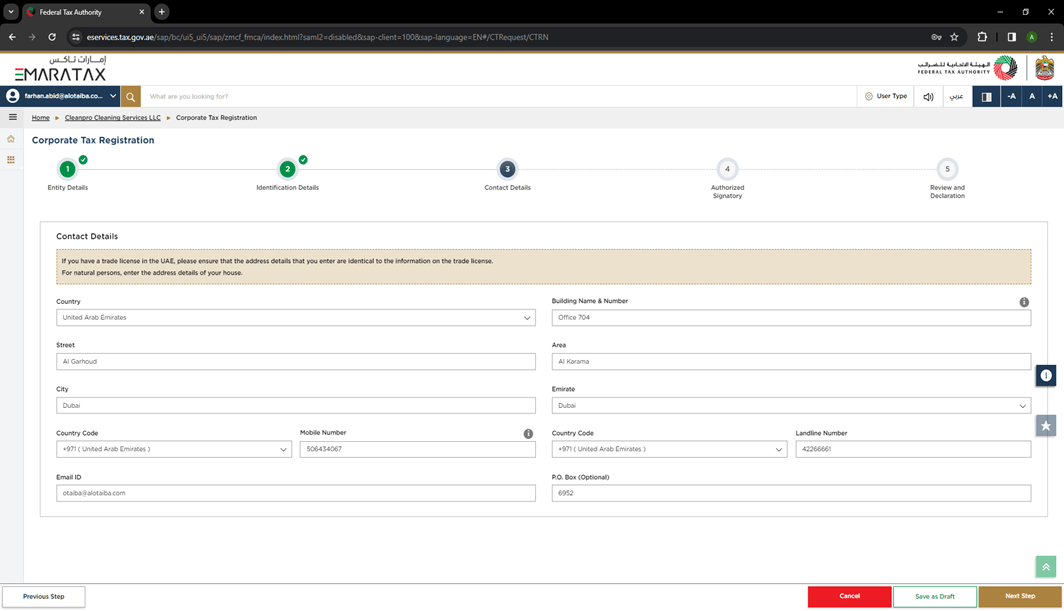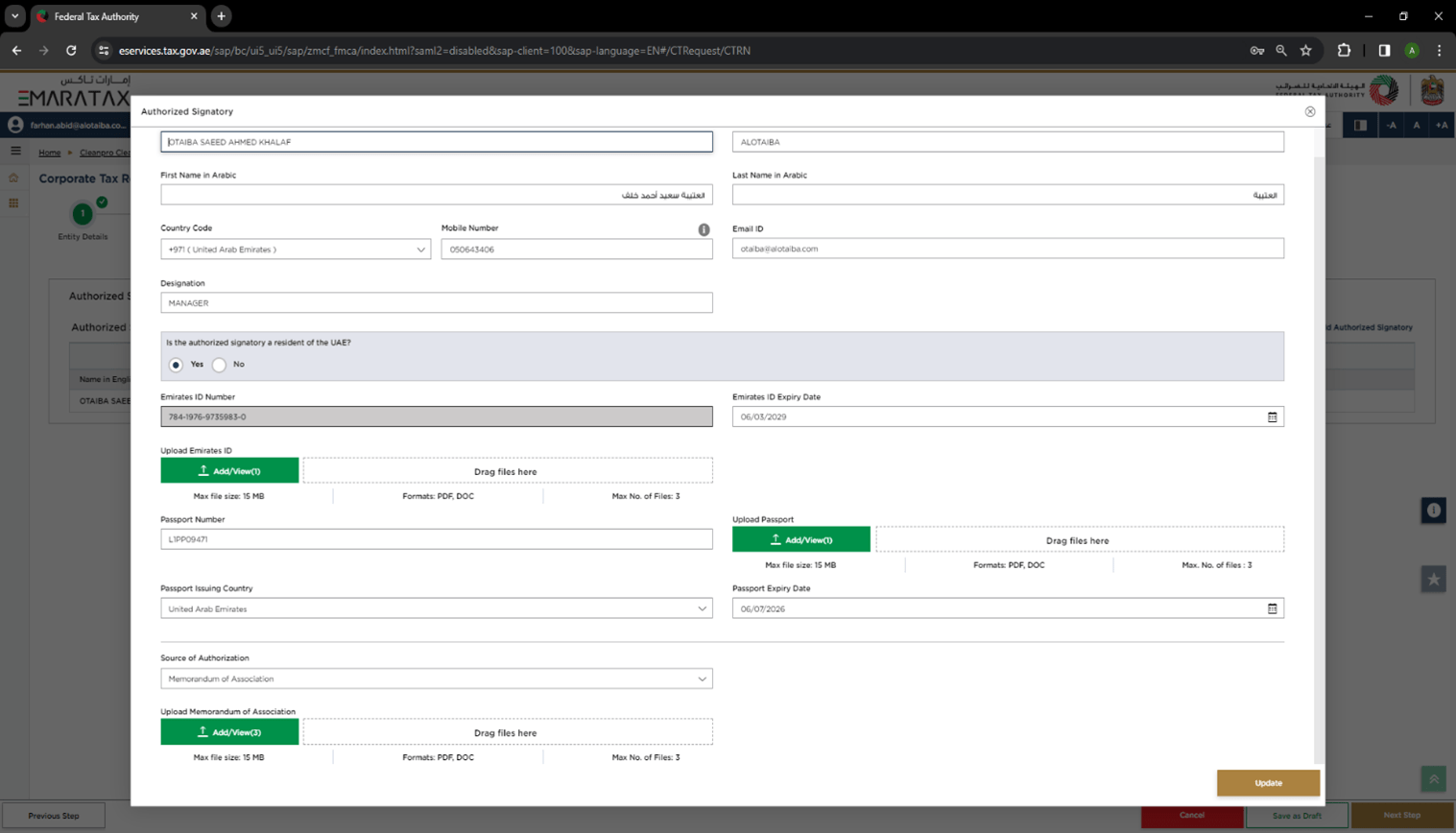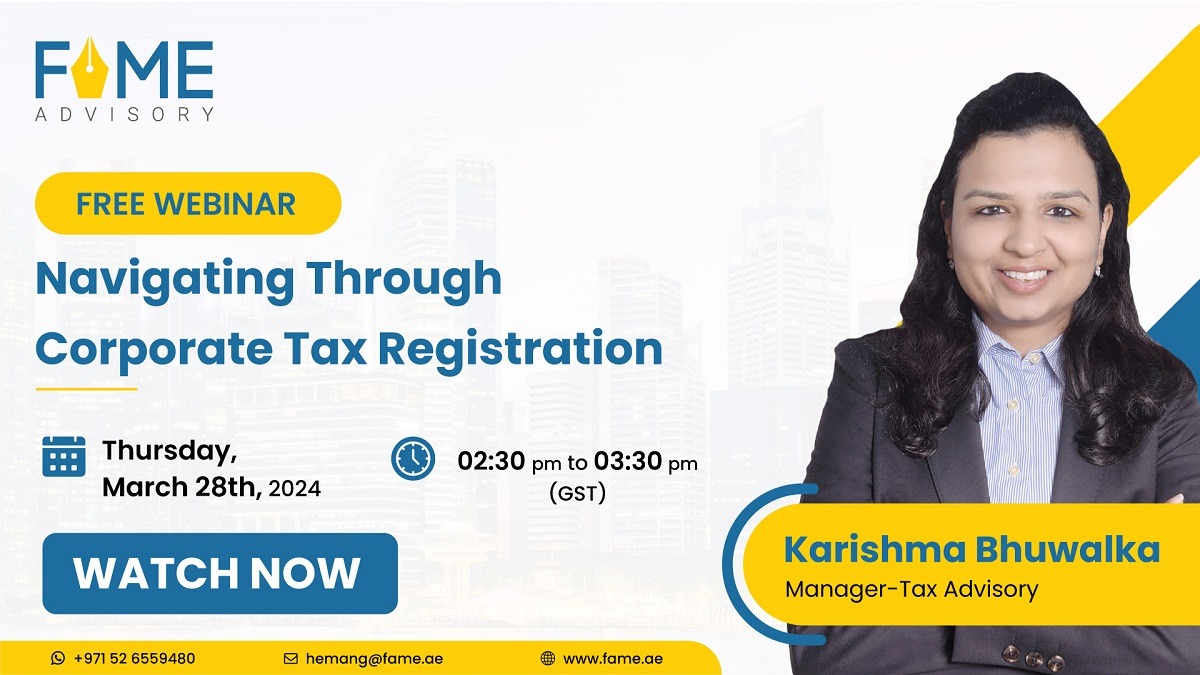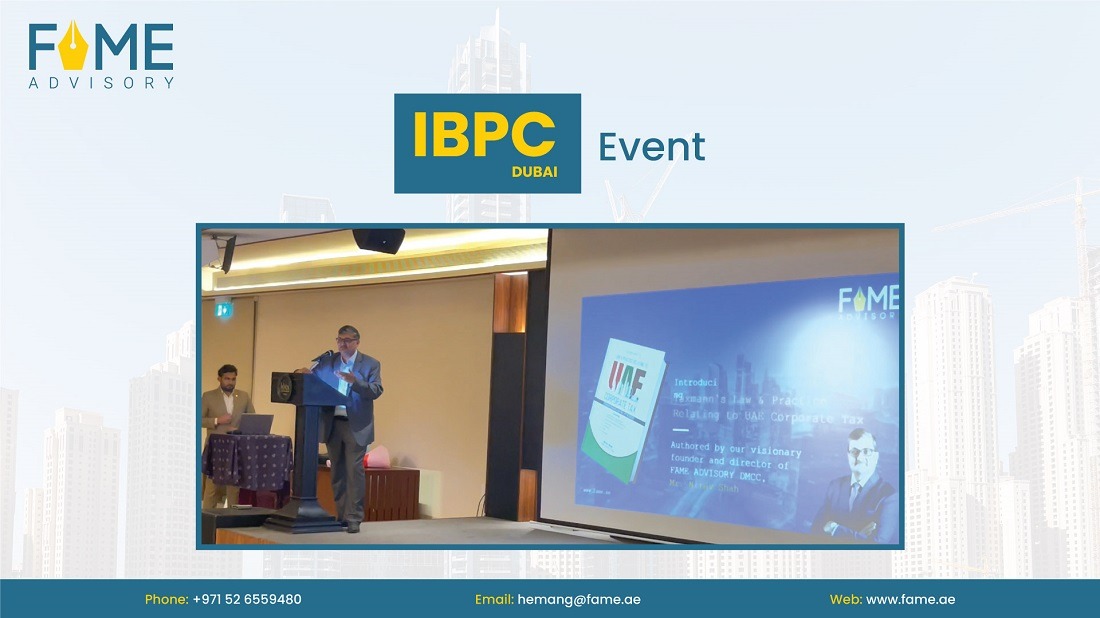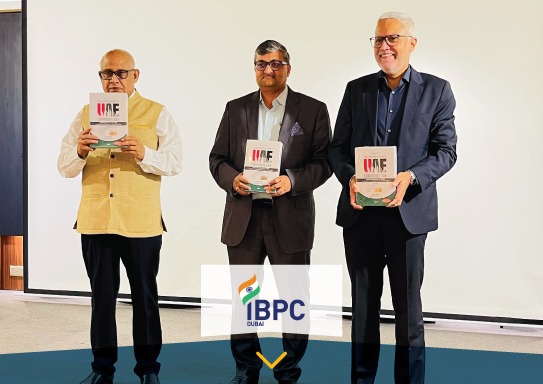
On April 17, 2024, the Federal Tax Authority (‘FTA’) released a Corporate Tax Guide concerning “Business Restructuring Relief” (‘Relief’), with the aim of offering comprehensive direction on the Relief provisions outlined in the Corporate Tax Law (‘CT Law’). This guide is crafted to furnish readers with a broad understanding of the Business Restructuring Relief available under Article 27 of the UAE Corporate Tax Law. It encompasses an overview of the following aspects related to the Relief:
- Transactions falling within the Relief’s scope,
- Eligibility criteria for the Relief,
- Consequences of electing for the Relief,
- Circumstances when the relief will be clawed back and consequences of clawback of the relief,
- Compliance prerequisites, and
- Interplay with other provisions of the UAE Corporate Tax Law.
The key highlights of the Guide are outlined below: –
General Aspects:
The Corporate Tax Law includes provisions to eliminates the corporate tax implications of specific transactions involved in business restructuring or reorganization. Typically, such transactions like mergers or demergers could trigger taxable gains or losses, even without a change in ultimate ownership or if the original owners maintain a stake in the restructured entity. To facilitate restructuring for valid commercial reasons, Business Restructuring Relief under Article 27 of the Corporate Tax Law enables certain restructuring transactions to occur without tax consequences. However, this relief is contingent upon meeting specified conditions and requires the Transferor to elect for its application.
Applicability of Business Restructuring (BR) Relief
BR Relief is specifically applicable in two scenarios: –
- The first category is where there is a transfer of an entire business or an independent part of the Business from one Taxable Person to another.
- The second category is where there is a transfer of an entire business from one or more Taxable Persons to another, and the Transferor then ceases to exist.
Consideration for transfer –
1. One of the conditions for Business Restructuring Relief on the transfer of a Business or an independent part of a Business is that the consideration for the transfer is to be received by the Transferor. .
- As an exception, a transfer will still be considered to meet the conditions for the Business Restructuring Relief if the consideration is received by a Person that has a direct or indirect ownership interest of at least 50% in the Transferor. The shareholder of the Transferor who can receive the consideration for a transfer within the framework of Business Restructuring Relief can be a juridical person or a natural person and is not required to be a Taxable Person .
2. If payment in forms other than shares or ownership interests, like cash, is made, the transfer remains eligible for Business Restructuring Relief provided that the Market Value of this alternative consideration does not exceed the lower of the following-
- the net book value of the assets and liabilities transferred, or
- 10% of the nominal value of the issued ownership interest
Consideration for transfer –
For the relief to apply, all criteria must be met:
- The transfer must comply with the UAE legislation.
- Both the transferor and transferee must be either resident persons or a non-resident but with a permanent establishment (PE) in the UAE.
- Neither party can be an exempt person or a Qualifying Free Zone Person (QFZP).
- The Financial Year and accounting standards of both persons must align.
- The transfer must be undertaken for valid, non-fiscal commercial reasons that reflect an economic reality.
Note: There is no condition in respect of the ownership of the Transferor or the Transferee. Thus, the relief covers Business restructuring transactions where a Business is transferred from one Related Party to another and also where the Business restructuring is between third parties.
Exceptions to BR Relief:
- BR Relief is not available for transfers between a Permanent Establishment in the UAE and the head office since a Permanent Establishment and its head office are the same Person.
- BR Relief is not available if a Non-Resident Person transfers or is transferred a Business or an independent part of a Business which is not attributable to a Permanent Establishment in the UAE.
- BR Relief is not available for Resident Person that elects for Small Business Relief.
Consequences of electing for BR Relief:
- For the Transferor: -As the Transfer of assets and liabilities is at net book value, there will be no taxable gain or loss for the Transferor.
- For Transferee:
- In cases other than realisation- The Transferee shall exclude depreciation, amortisation or other change in the value of the transferred assets and liabilities to the extent that they relate to the gain or loss that arose to the Transferor and were not recognised as a result of the Business Restructuring Relief being applied.
- In cases upon realization – the Transferee will need to include any amount that has not been recognised for CT purposes.
Transfer of Tax Losses
Where a Business or independent part of a Business is transferred on a no gain or loss basis, any unutilised Tax Losses incurred by the Transferor in Tax Periods before the restructuring transaction, can be carried forward and are considered as Tax Losses of the Transferee, provided the Transferee continues to conduct the same or a similar Business or Business Activity as the Transferor conducted before the restructuring transaction.
Clawback of the BR Relief –
- Business Restructuring Relief shall not apply if any of the following circumstances occur within two years from the date of transfer :-
- The shares or other ownership interests in the Transferor or the Transferee are sold, transferred or otherwise disposed of, wholly or partially to a Person that is not a member of the Qualifying Group.
- There is a subsequent transfer or disposal of the Business or the independent part of the Businesses originally transferred.
- The gain or loss on the transfer shall be included in the taxable income of the Transferor in the Tax period in which clawback is triggered. While calculating this gain or loss, market value of assets and liabilities as on the date of the business restructuring will need to be considered, even if this market value if different on the date of the clawback being triggered.
Other Key Takeaways:–
- Transferor has to make election for application of BR Relief which implies that BR Relief is not automatic.
- BR Relief can also apply if assets or liabilities are transferred from one Permanent Establishment in the UAE to another Permanent Establishment in the UAE, if the relevant conditions are met.
- BR Relief can also apply for a Transferor or Transferee that is a Free Zone Person but not a Qualifying Free Zone Person.
- If Transferor and Transferee follow the same Accounting Standards, they may follow different accounting policies, provided that such policies are permitted under the relevant Accounting Standards.
- Both the Transferor and the Transferee are required to maintain a record of the agreement to transfer the asset or liability and evidence of the value.


